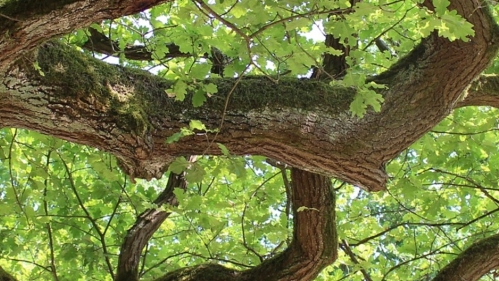
Campus Climate Assessments at Rutgers University
Building Safer Campus Communities
In 2014, Rutgers University was asked by the Obama Administration’s White House Task Force to Protect Students from Sexual Assault to pilot a campus climate survey tool developed by the Department of Justice’s Office on Violence Against Women. During the 2014–2015 academic year, researchers from the Center for Research on Ending Violence launched #iSPEAK, its first campus climate survey about sexual violence, on the Rutgers University–New Brunswick campus. In an inquiry intended to engage all students across campus, more than 12,000 students shared their attitudes and beliefs about campus sexual violence, as well as their familiarity with campus resources intended to address such violence. Download the original 2014 campus climate survey. The Center for Research on Ending Violence (REV) was asked to provide a report for the White House Task Force on our experience of piloting the tool. Download "Lessons Learned" from our experience piloting the tool.
Since then, the Rutgers’ campus climate surveys have evolved based on the best science available and have expanded to address a range of forms of interpersonal violence (sexual and dating violence, harassment, and discrimination). Surveys were conducted with students twice so far on the Newark, Camden, and New Brunswick campuses (see below for the various tools used), and once at Rutgers Health.
In total, the campus climate survey has been distributed to more than 54,500 students at Rutgers University on the New Brunswick, Camden, Newark, and RBHS campuses as of Fall, 2020. More than 22,000 students have returned the survey. These surveys have yielded a wealth of rich information about the experiences, attitudes, beliefs, and behaviors of students related to sexual violence on campus. What’s more, they have led to significant changes in campus policies and services regarding sexual and dating violence and harassment.
In Fall 2022, Rutgers expanded its campus climate assessment efforts by launching the first university-wide survey for faculty and staff. Sponsored by the Office of the Executive Vice President for Academic Affairs, the survey aimed to assess the campus climate related to harassment. The Academic and Workplace Behaviors and Environment Survey (AWBES) was designed to establish a baseline understanding of the experiences of Rutgers faculty and staff related to sexual harassment and workplace mistreatment. The findings will provide a reference point for measuring progress and guide decision-making to foster a more inclusive community free of harassment at Rutgers. The results from this survey were released in Fall 2024 and action planning is currently underway (see the university-wide action plan developed to address survey findings here).
Please find the following resources below:
- Campus Climate Survey Tools
- Campus Climate Survey Results Highlights
- Campus Climate Survey Reports
- Campus Climate Focus Groups
- Other tools for assessing campus climate
- Action Plans Results from the Campus Climate Surveys and Focus Groups
- Implementation and Assessment of Action Plans
- Campus Climate Tools, Guides, and Articles


Accordion Content
-
2018 Student Survey: Created new randomized module on dating violence, administered at New Brunswick. Download the 2018 survey tool.
2020 Student Survey: Added new harassment items, administered at Rutgers Health. Download the 2020 survey tool.
2022 Employee Survey: Adapted to employee context, administered university-wide. Download the 2022 survey tool.
-
Students
- Many students experience sexual and dating violence prior to and since arriving on campus, with LGBTQI+ students particularly at risk.
- Many students have low awareness of the campus resources intended to address campus violence.
- Students who have been victimized tend to disclose their experience to formal resources at extremely low rates. Examples of such formal on-campus resources include staff from the Title IX office, the on-campus victim services center (the Office for Violence Prevention and Victim Assistance), and Counseling Services.
- Peers are an important source of support for students who experience interpersonal violence.
Faculty/Staff
- Many faculty and staff experience workplace incivility while working at Rutgers, with those identifying as transgender, genderqueer, and gender nonbinary, multiracial faculty/staff, as having a disability, or LGBQA+ particularly at risk.
- Many faculty and staff experience sexual harassment while working at Rutgers, with those identifying as transgender, genderqueer, and gender nonbinary, White women, as having a disability, or LGBQA+ particularly at risk.
- Most faculty and staff who experienced sexual harassment reported adverse impacts as a result.
- Faculty and staff who have experienced sexual harassment tend to formally report these incidents at extremely low rates.
-
Results for each survey administration are available in the following reports that include full findings (tables for all questions asked) and key findings (summaries):
University-wide
New Brunswick
- 2014 Full Findings on Sexual Violence
- 2018 Full Findings on Sexual and Dating Violence
- 2018 Key Findings from Sexual Violence Module
- 2018 Key Findings from Dating Violence Module
- 2018 Key Findings: Comparison between 2014 and 2018 Campus Climate Results
Camden
Newark
Rutgers Biomedical & Health Sciences (RBHS)
- 2020 Key Findings on Sexual Harassment from Robert Wood Johnson Medical School
- 2020 Key Findings on Sexual Harassment from Rutgers School of Dental Medicine
- 2020 Key Findings on Sexual Harassment from School of Graduate Studies (RBHS)
- 2020 Key Findings on Sexual Harassment from School of Health Professions
- 2020 Key Findings on Sexual Harassment from School of Nursing
- 2019 Full Findings on Sexual Harassment from New Jersey Medical School
- 2019 Key Findings on Sexual Harassment from New Jersey Medical School
- 2019 Full Findings on Sexual Harassment from School of Public Health
- 2019 Key Findings on Sexual Harassment from School of Public Health
Population/issue based short reports on campus climate survey findings from New Brunswick
Individual students’ experiences, beliefs, and attitudes regarding sexual and dating violence and awareness of campus resources vary widely. Researchers have analyzed the data from the campus climate surveys to understand the unique experiences of specific student populations and by various topics. Please click the links below to download examples of these reports from the 2018 New Brunswick campus climate survey.
- Results for Graduate Students
- Results for Queer and Trans Students
- Results by Race/Ethnicity
- Results for Off Campus Students
- Characteristics of Those who Committed Sexual Violence and Dating Violence as Reported by Survivors
- Results for Students with Disabilities
In addition to the administration of campus climate surveys, more than 40 focus groups, comprised of over 270 students were conducted to ascertain the perspectives of various student groups and more in-depth information on particular topics. These included survivors of campus violence, LGBTQI+ students, graduate students, students affiliated with cultural centers, student government leaders, resident assistants, on-campus residents, commuter students, members of sororities and fraternities, and athletes. For more information, see the 2018 Findings on focus groups examining dating violence on campus.
-
In addition to the administration of campus climate surveys, more than 40 focus groups, comprised of over 270 students were conducted to ascertain the perspectives of various student groups and more in-depth information on particular topics. These included survivors of campus violence, LGBTQI+ students, graduate students, students affiliated with cultural centers, student government leaders, resident assistants, on-campus residents, commuter students, members of sororities and fraternities, and athletes. For more information, see the 2018 Findings on focus groups examining dating violence on campus.
Focus Group Findings Highlights
- As with the survey findings, many students were unaware of resources available on campus.
- Many students indicated that they were unclear about formal reporting procedures on campus.
- Some students expressed fear of retaliation or not being believed if they were to report; these issues must be accounted for when providing reporting options that are trauma-informed.
- Many students indicated an interest in taking prosocial bystander action, but those students with identities marginalized by race and sexual orientation indicated barriers to feeling supported in their ability to intervene and recommended more intersectional, social-justice based approaches to prevention.
-
The Rutgers model for conducting campus climate assessment recognizes that multiple forms of data collection are beneficial for obtaining a more rigorous and fuller picture. To enhance our campus climate survey findings, we have used an audit tool and focus groups, both described below.
- Services, Policies and Programs Audit Tool
- The Services, Policies, and Programs Audit (SPPA) is a tool developed by REV to help campuses assess their adherence to best practices in sexual violence services, policies, and programs. By serving as an initial step, the SPPA helps colleges evaluate their institutional climate and identify areas for improvement. Its findings can be integrated with other data collection efforts, such as campus climate surveys, to create a comprehensive "data ecosystem" that provides a holistic view of the institution's efforts to address campus sexual violence.
- For more information about the SPPA tool, see the following: McMahon S, Cusano J, Macri L, Chen A. (2022) Development of the services, policies and programs audit tool to address campus sexual violence. Health Education & Behavior. 2023;50(3):310-317. doi:10.1177/1090198122111678
- Services, Policies and Programs Audit Tool
-
Survey results were used to develop tailored action plans on each campus to enhance the response to, and prevention of, campus sexual and dating violence and harassment.
At Rutgers–Newark, a Climate Survey Action Plan Committee was formed and offers many educational brochures, information sessions, and web-based trainings around sexual harassment, sexual assault, dating violence, and consent. Click here to learn more about this action report.
At Rutgers-Camden, a Prevention Working Group offers violence prevention education to all students on an ongoing basis. Many new programs working with diverse campus populations -- including Student Success Coaches, the Office of Fraternity and Sorority Affairs, Athletics, RUPD, the Graduate School Deans and Program Directors, and Student Health Services (among others) – have emerged to offer coordinated sexual violence prevention and response programming. Click here to learn more about this action plan.
At Rutgers-New Brunswick, a collaborative group, End Sexual Violence Now, was created and included staff from across the Division of Student affairs. The strategic areas of the group included outreach and programming, supporting individual office efforts across the campus, and policy training. Additionally, a webpage dedicated to addressing sexual and dating violence on campus was developed and released, which includes programs and incorporated initiatives from the Office for Violence Prevention and Victim Assistance (VPVA).
-
Rutgers was awarded a multi-million dollar grant from the Victims of Crime Act funds administered through the New Jersey Attorney General’s office for the period of 2017-2025 to further build upon campus climate findings. These funds were used to develop innovative programs to engage men and other special populations of students; strengthen partnerships with university neighbors and community-based service providers; expand bystander intervention education; and involve student leaders, as well as faculty and staff, in efforts to build a safe and inclusive campus.
Assessment will continue across the university, along with program evaluation, to measure the university’s response to addressing the climate.
An integral part of the project was also providing support and resources to our campus partners in order to help build upon and improve services, programs, policies and initiatives.
To advance this goal, the Campus Interpersonal Violence Technical Assistance Learning Deck was developed. The learning deck is a centralized resource hub offering capacity-building tools, research on violence prevention and intervention, and best practices that bridge policy, practice, and research. These resources support Rutgers faculty, staff, and campus partners in strengthening programs, policies, and initiatives to prevent and respond to interpersonal violence on campus.
Access the learning deck here: Campus Interpersonal Violence Technical Assistance
-
REV has developed a comprehensive guide for institutions seeking to translate campus climate survey findings into meaningful change. The Toolkit to Create Recommendations for Action supports institutions in reviewing faculty and staff climate survey data, prioritizing key findings, and developing actionable recommendations aligned with institutional goals.
Once recommendations have been developed, the Campus Climate Survey Implementation Toolkit: Turning Recommendations into Action—created by REV—provides step-by-step guidance to move from action planning to implementation. This toolkit is designed to assist institutional divisions, departments, or planning teams in coordinating, operationalizing, and sustaining actions in response to faculty and staff campus climate survey findings.
Understanding and Responding to Campus Sexual Assault: A Guide to Climate Assessment for Colleges and Universities is a free, detailed guide developed by REV for other campuses interested in conducting comprehensive campus climate assessments. Click here to download all attachments referenced in the guide.
The REV Center also created an Outreach Strategy Toolkit to help institutions create awareness among students about the campus climate survey and motivate them to participate.
Peer-reviewed Publications
Researchers from The Center for Research on Ending Violence have published a number of articles related to conducting comprehensive campus programming and evaluation, including the following:
McMahon, S., Connor, R.A., Cusano, J., Brachmann, A. (2023). Why do students participate in campus sexual assault climate surveys? Journal of Interpersonal Violence, 38, (13-14), 8668-8691. https://doi.org/10.1177/08862605231153881
McMahon, S., Cusano, J.L., Macri, L., & Chen, A. (2023). Development of the Services, Policies and Program Audit (SPPA) tool to address campus sexual violence. Health Education & Behavior, 50 (3), 310-317. https://doi.org/10.1177/10901981221116785
McMahon, S., Cusano, J., Buttner, C., Snyder, S., Ast, R. S., & Camerer, K. (2022). Evaluating efforts to address campus sexual violence: Developing a data ecosystem. Journal of Interpersonal Violence, 37 (23-24). https://doi.org/10.1177/08862605221078817
McMahon, S., Wood, L., O’Connor, J., Farmer, A.Y., & Backes, B. (2022) Special Issue, Sexual Assault Climate Surveys: Methodological Issues and Innovations. Journal of Evidence-Based Social Work. https://www.tandfonline.com/toc/webs22/19/5
McMahon, S., Steiner, J., Snyder, S., & Banyard, V. (2019). Comprehensive prevention of campus sexual violence: Expanding who is invited to the table. Trauma, Violence, & Abuse. https://doi.org/10.1177/1524838019883275
McMahon, S., Wood, L., Cusano, J., & Macri, L. (2018). Campus sexual assault: Future directions for research. Sexual Abuse: A Journal of Research and Treatment, 31(3), 270–295. https://doi.org/10.1177/1079063217750864
McMahon, S., Stepleton, K., Cusano, J., O’Connor, J., Gandhi, K., & McGinty, F. (2017). Beyond sexual assault surveys: A model for conducting a comprehensive campus climate assessment. Journal of Student Affairs Research and Practice, 55 (1), 78-90. https://doi.org/10.1080/19496591.2017.1358629
Acknowledgements
#iSPEAK was launched in 2014 at the request of the White House Task Force to Protect Students from Sexual Assault, using a campus climate survey tool developed by the Department of Justice’s Office on Violence Against Women.
Researchers from Rutgers’ Center for Research on Ending Violence (REV) at the School of Social Work partnered closely with Student Affairs to conduct the project.
For more information email Dr. Sarah McMahon.


